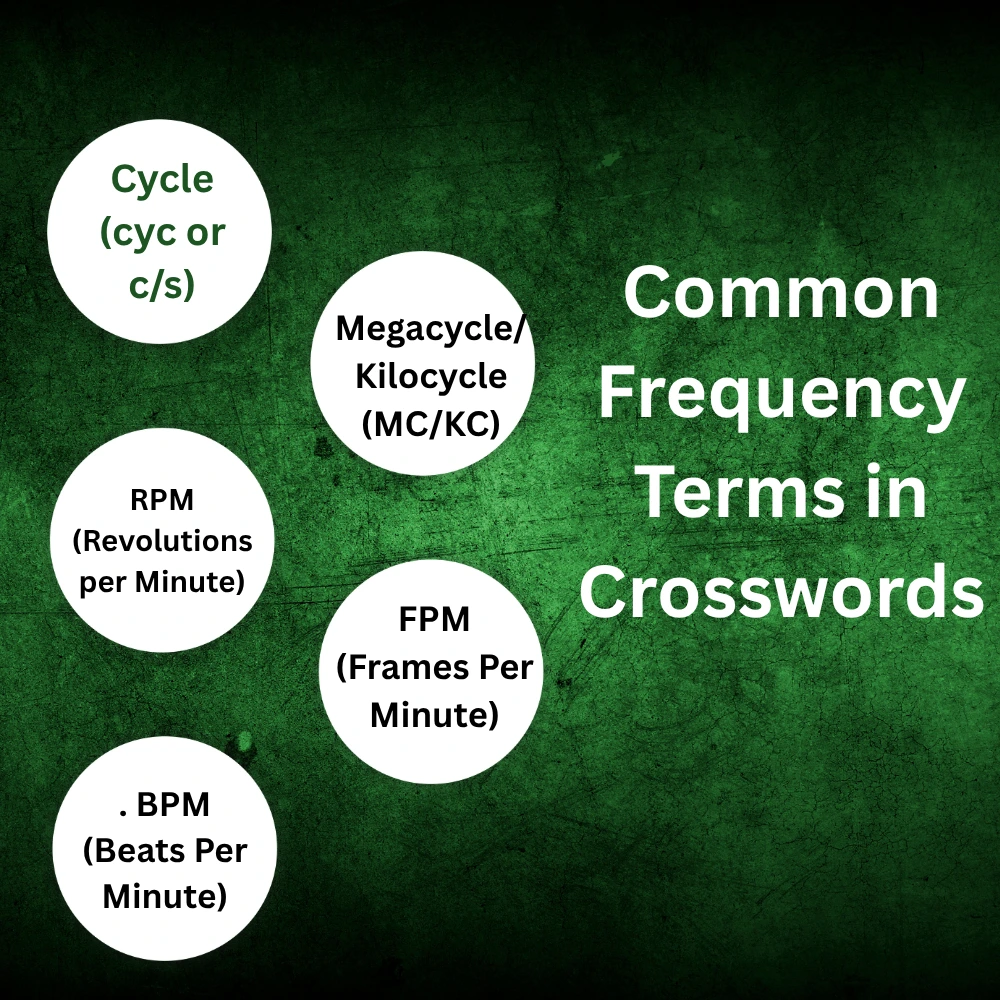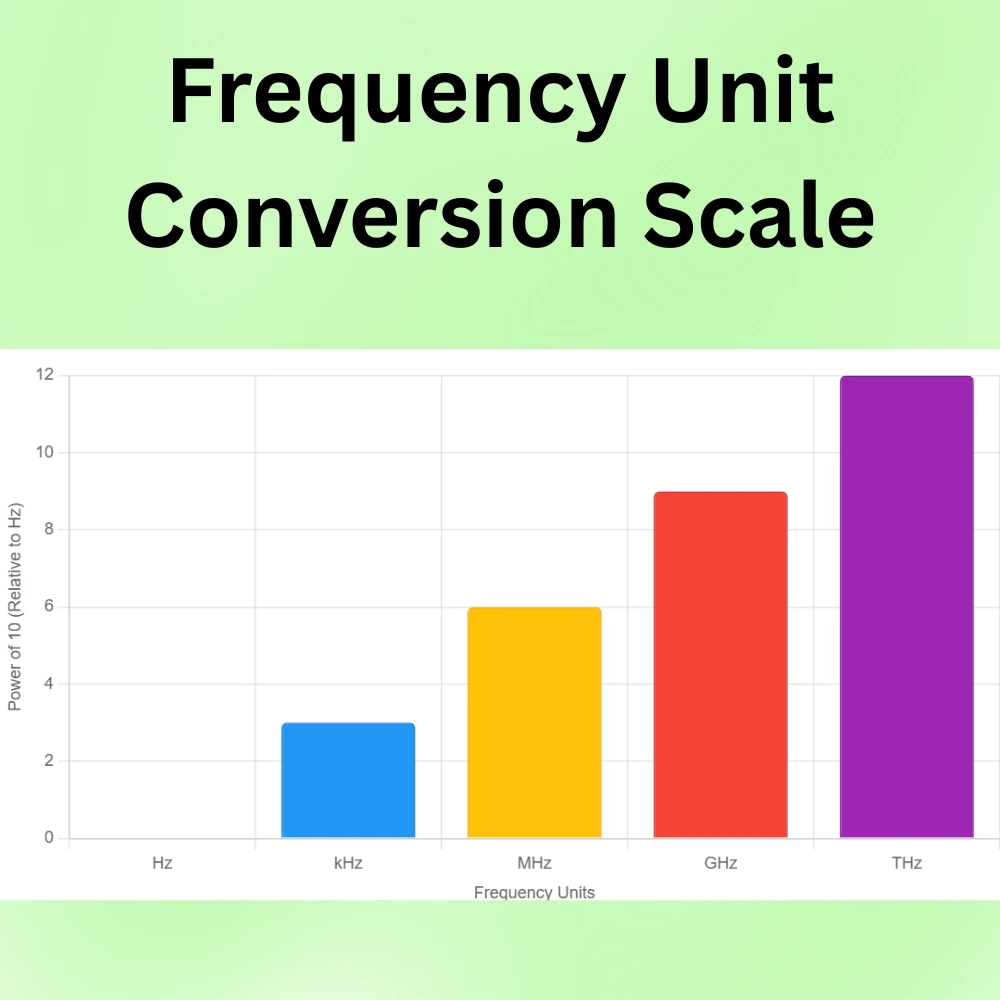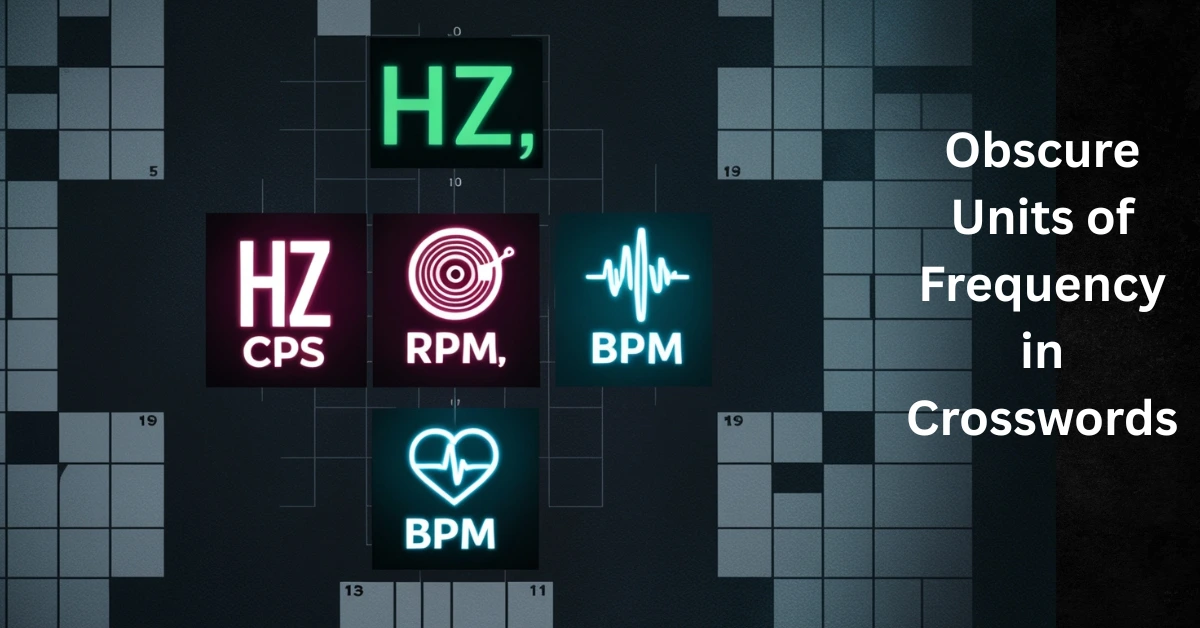In crossword puzzles, when you come across the clue “unit of frequency,” it’s most often referring to Hz or Hertz. These are familiar but crossword setters enjoy sprinkling in surprises rare and archaic units that add variety and challenge.
Understanding Frequency in Simple Terms
Before diving into the obscure terms, let’s take a moment to understand what frequency means in everyday words. Frequency tells us how often something happens in a set amount of time. For instance, if your heart beats 70 times in one minute, its frequency is 70 beats per minute (BPM).
How many cycles of frequency?
In physics and technology, frequency usually describes how many cycles a wave (like a sound or light wave) completes in one second.
The most common unit for measuring frequency is Hertz (Hz), named after Heinrich Hertz, the German physicist. One Hertz represents a single cycle happening every second. When crossword clues hint at frequency, Hz is often the go-to answer but not always.
Why Crosswords Use Obscure Units?
Crossword puzzles love misdirection. Clues may sound scientific but the answer might be casual, playful or historical. Sometimes, crossword creators choose to reference units that are:
- Obsolete
- Niche or domain specific
- Used in music or mechanics
- Variations of “Hz” but disguised through wordplay
For solvers, this means that a basic understanding of science terms might not be enough. A clue like “Old unit of frequency” might require knowledge beyond the classroom. That’s where obscure units come in.
Understanding Hz: The Symbol of Frequency
Hertz (symbol: Hz) is the standard unit of frequency in the International System of Units (SI).It indicates how often an event occurs within one second.
1 Hertz (Hz) = 1 cycle per second
For example:
- If a sound wave vibrates 440 times in a second, its frequency is 440 Hz.
- If your heart beats 70 times in a minute, its frequency is about 70 beats per minute (BPM), which is approximately 1.17 Hertz.
Hertz: The Name Behind the Unit
Hertz is the full name of the unit of frequency, named after the German scientist Heinrich Hertz, who first proved the existence of electromagnetic waves. When we say “100 Hertz,” it means the same as “100 Hz.” This term became the official SI unit of frequency in 1960, replacing older terms like cycles per second (cps). Hertz is used to describe everything from radio signals and sound waves to electricity and heartbeats.
What Lies Beyond Hz and Hertz?
While Hertz (Hz) is the official and most widely used unit of frequency today, it’s not the only one, especially when you dive into the world of crossword puzzles, old textbooks, musical terms or mechanical systems. In fact, before Hz became the standard unit in 1960, and even in different professional fields, several other units have been used to describe how often something happens over time. These alternative units may no longer be common in science labs but they still show up in puzzles, technical discussions, and pop culture references.
Common Frequency Terms in Crosswords
Let’s now uncover some frequency related terms that have shown up in crossword puzzles. There are some real, some archaic, and some just unusual.
1. Cycle (cyc or c/s)
Before Hz was adopted as the standard unit, cycles per second (cps) was widely used to measure frequency.
- “Old frequency measure” = CPS
- “Pre-Hz freq unit” = CPS
Even though cps means exactly the same as Hz, it has an old fashioned tone, which crossword makers love to play with.
2. RPM (Revolutions per Minute)
Although RPM is mostly used in mechanics (like car engines or vinyl record players), it technically measures frequency too. Some crossword clues might be:
- “Turntable measure” = RPM
- “Engine freq.” = RPM
It may not be a scientific unit in the strictest sense, but it still counts.
3. BPM (Beats Per Minute)
This unit shows up in clues related to music or heart rate. It measures how often a beat or sound happens each minute.
- “Musician’s tempo unit” = BPM
- “Heart rate unit” = BPM
Though it’s familiar to many, BPM is still considered a “soft science” unit compared to Hz.
4. Megacycle/Kilocycle (MC/KC)
Before the SI unit system was standardized, larger frequencies were described in kilocycles (kC) or megacycles (MC).
- “Old radio freq unit” = KC
- “Pre-MHz term” = MC
These terms are rarely used today but are still fair game in old-style or tricky puzzles.
5. FPM (Frames Per Minute)
More common in film or media editing than in pure science, FPM can still pop up in crosswords. It’s a unit to describe how many frames pass in a given time.
- “Film editor’s unit” = FPM
Frequency Unit Conversion Scale
Frequency tells how many times an event repeats in a given time (usually per second). The most common base unit is Hertz (Hz), but we often use scaled versions for very high or very low frequencies.
Standard Frequency Conversion Units
- 1 Hz (Hertz) = 1 cycle per second
(Base unit) - 1 kHz (Kilohertz) = 1,000 Hz
(Used in audio, radio signals) - 1 MHz (Megahertz) = 1,000,000 Hz
(Used in radio, processors, communication) - 1 GHz (Gigahertz) = 1,000,000,000 Hz
(Used in computers, mobile signals) - 1 THz (Terahertz) = 1,000,000,000,000 Hz
(Used in advanced physics and astronomy)
Lower Scale Units (Less Common)
- 1 mHz (millihertz) = 0.001 Hz
(Used for very slow or rare events) - 1 µHz (microhertz) = 0.000001 Hz
(Extremely slow natural phenomena, like planetary motion)
Puzzle creators love to bend the rules of language. They might:
- Use abbreviations that are only found in niche industries
- Turn scientific terms into puns
- Hide the actual meaning by using vague clues like “freq unit” or “cycle measure”
For example:
- “Freq. unit before SI” = CPS
- “Measure of spinning” = RPM
- “Musical frequency” = BPM
These clues challenge solvers to think outside of textbook definitions and consider context, history, and even slang.
Tricky Wordplay Techniques
Some clues don’t even hint at frequency directly. Instead, they use metaphor or pun-based approaches. For instance:
- “Old school sound unit” = KC
- “Buzz measure?” = Hz
- “Jazz tempo setting” = BPM
Solving such clues often relies more on a solver’s experience with crossword language than on science knowledge. That’s why understanding obscure units gives an edge.
Tips for Solving Frequency Based Crossword Clues
Here are a few useful strategies to crack crossword clues involving frequency:
- Know the classics: Hz, RPM, BPM, CPS are essential to memorize.
- Think historically: If the clue says “old” or “outdated,” expect something like KC or MC.
- Look for context: If the clue involves music, you’re more likely to use BPM than Hz.
- Watch abbreviations: Crosswords love using shortened forms like FPM, RPM, or CPS.
- Use theme clues: If the puzzle’s theme is vintage technology or physics, frequency clues may tie into it.
- Consider double meanings: Words like “beat,” “cycle,” or “turn” can relate to both literal and figurative frequencies.
Frequency HZ Through Time
Left Side.. Modern Era:
- Features Hz (Hertz) as the standard unit of frequency.
- Displays digital graphs, waveforms, and scientific meters.
- Symbolizes precision, modern physics, and everyday tech like Wi-Fi or audio systems.
Right Side.. Vintage Era:
- Includes CPS (Cycles Per Second), RPM (Revolutions Per Minute), KC (Kilocycles), Baud, and BPM (Beats Per Minute).
- Visuals of analog radios, record players, old meters, and music sheets.
- Highlights how frequency was measured before Hz became standard.
Crossword Element:
- A small crossword puzzle grid subtly connects the terms.
- Represents how obscure units still appear in puzzles today.
Beyond Science: Frequency in Pop Culture Clues
Sometimes crossword clues stretch the idea of frequency into pop culture. You might see:
- “YouTube stat” = BPM
- “Podcast rhythm” = RPM
- “Dance tempo” = BPM
These modern uses show that frequency isn’t limited to physics anymore—it’s part of everyday speech and entertainment.
Why It Matters to Crossword Enthusiasts?
To a casual reader, knowing that “Hz” stands for Hertz might be enough. But for passionate crossword solvers, that’s just the tip of the iceberg. Understanding obscure units of frequency doesn’t just help with one clue . It builds up the problem solving muscle needed to navigate the trickiest word puzzles.
Final Thought
So, what’s beyond Hz and Hertz? A rich mix of technical, historical and creative units that live on in the world of crossword clues and clever wordplay. These unusual terms remind us that language and measurement evolve and that puzzles often preserve the past in the most surprising ways.



